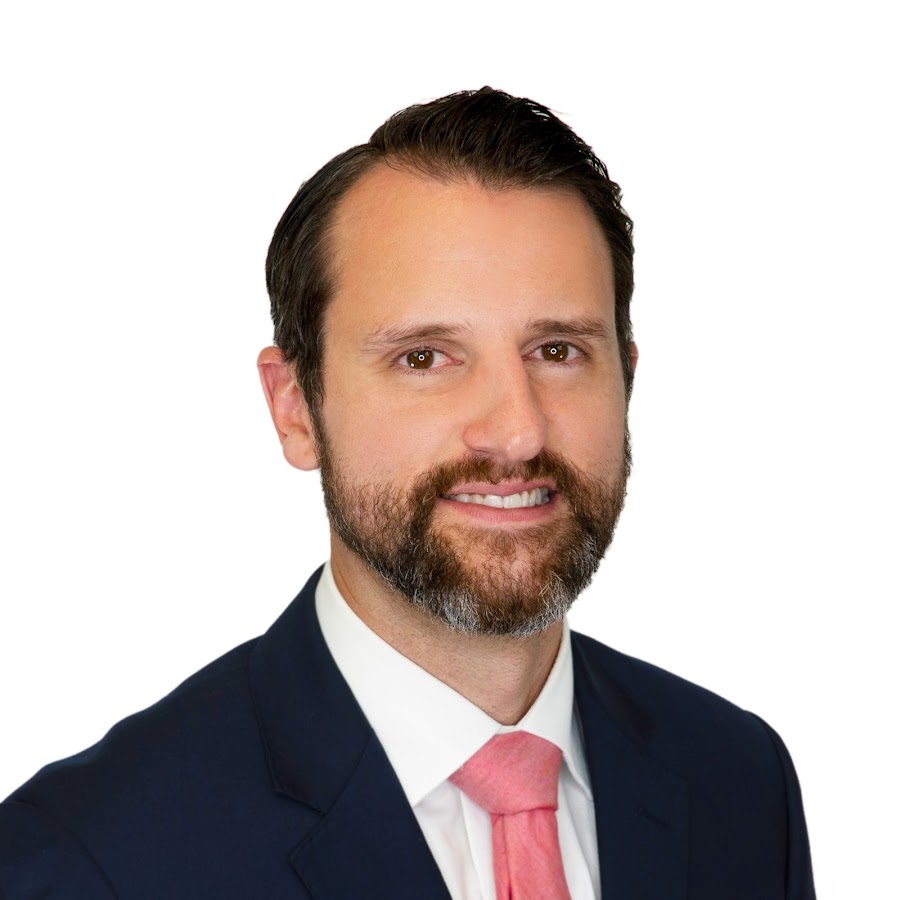There are a lot of financial what if’s when it comes to retirement. Derek Mazzarella shares his perspective on how to find the success you’re looking for!
Listen to us On
About the Episode
We focused on financial what if’s in retirement, how to successfully transition from fulltime work to retirement, how to create retirement income that will be there for as long as you need it to, and how to alleviate stress once you’ve retired, with Derek Mazzarella, CFP with Gateway Financial Partners.
Listen to hear a difference-making tip on why it’s critical to pay attention to taxes in retirement!
You can learn more about Derek at JustRetireAlready.com, Facebook, YouTube, and LinkedIn.
Did you get anything out of this episode? Do us a solid and leave a review:
https://ratethispodcast.com/alignedmoneyshow
Learn more and engage at MoneyAlignmentAcademy.com, Twitter, LinkedIn, Instagram, YouTube and Facebook.
Buy George G a coffee (he loves coffee)
https://www.buymeacoffee.com/lifeblood
Have George G speak
https://moneyalignmentacademy.com/speaking/
Financial literacy and wellness for individuals, families, and companies
https://moneyalignmentacademy.com/
Find George G’s books here
The Aligned Money Show is the podcast for Money Alignment Academy, copyright 2024.

George Grombacher
Host

Derek Mazzarella
Guest
Episode Transcript
george grombacher 0:02
All right, Derek, to get us started. Give me two truths and a lie, please.
Derek Mazzarella 0:06
Alright, let’s go. So my first item would be I used to live in Boston. And I actually got to be an extra on the town. So if you’re in that scene where they’re walking to the laundromat, you may see me for like two seconds to, I’ve been to every state on the east and west coast. And number three, I was actually the mascot. My college. It was a bulldog.
george grombacher 0:30
Oh, my goodness. You weren’t extra in the wonderful movie that town. You’ve been to every state on the east and west coast. And you were you were the Bulldog in college? Okay. Nice. Well, those are all very good. I’m gonna guess that you have not been to every state on the eastern west coast?
Derek Mazzarella 0:51
No, the lie is actually I’ve ever been an extra on the town. Ah, you got me. Good job. Got to be specific. George. That’s how you get them? For sure.
george grombacher 1:00
Well done. Well done. Have you seen the movie The Town? Of course I have. It’s awesome, of course. And you were really in Boston? Or is that? Is that? Is that all made? Eric? No, I
Derek Mazzarella 1:10
looked at Boston. The one thing I hate about that one line of that movie do you want to say is when they’re in the bank scene in Northland. And they’re just driving around? Like, there’ll be so much traffic that would never ever have? Like, that’s completely unbelievable. Yeah, like, where are the cars? It’ll take you 20 minutes to get down three streets, even when another day there. So that’s a total. Like if
george grombacher 1:27
I robbed a bank with all the cars be gone? And would it be worth doing?
Derek Mazzarella 1:33
Yeah, that’s that’s what they don’t think about. Right? You gotta make sure that there’s no cars on the road for them.
george grombacher 1:38
I love it. All right. Well done. Well done. Well, Derek, what is top of mind for you right now? Well,
Derek Mazzarella 1:43
a lot of a lot of things I tend to focus on with my practice is helping people transition to retire and helping retirees really enjoy their retirement make a last chance to help them be as stress free as possible. So I’d love to chat with you about challenges people typically have misunderstandings people have about retirement. I don’t know what typically, you’ve seen in your line of work. But to have a discussion with you on that. Yeah,
george grombacher 2:04
I appreciate that. Those are, those are two challenging and important things making that transition. And then when you’re there not being stressed out and worried about money all the time. We were just talking a minute ago about how I don’t even this number comes out. Somebody produces a number it says to retire comfortably in United States. Now you need $1.4 million. Just what are your thoughts on that?
Derek Mazzarella 2:28
You know, I think it’s, it’s just so misleading to me for folks, because everyone is so different. And the number that you save really depends on your expenses. So really, people should be looking backwards. If they buy Well, what am I going to actually spend in retirement? You know, because to me, it’s like were those old ing commercials you saw where people had a numbers over their head with their net worth or whatever that number Senate, I just, I think that’s what people are trained like, oh, once I get to X number, I’ll be good when that’s not really the case. Because you and I probably have a much different number. And it’s based on our you know, where we live, because tasks is going to be different, how much we’re going to spend, you know, what we actually want to do? Are we going to work part time, are we gonna volunteer are we going to travel a ton. So that’s really going to depend a lot of we have and you know, I know that there’s a lot of rules of thumb about like having 70 or 80% of your pre retirement income. And I think a lot of folks that can help be a guideline that kind of mentioned if you’re on track, if you’re doing like back of the envelope math, but there’s just a lot of factors in retirement than just having a number saved. is all you have. And to me, that doesn’t make much sense. Plus be really discouraging for some of them may have, hey, I’m 50 years old, I don’t spend a ton of money, there’s no chance I’m gonna get 201 point 4 million and then just say, well, I may as well give up or eight is up. So to me, I really hate when they have this, or here’s your number. If you don’t get there. Good luck retiring. That’s just not a good mindset to have or put out there for people.
george grombacher 3:48
Yeah, I could definitely see how that would be a demotivating thing, like how in the world am I going to I can’t even save anything right now. How am I gonna save a million dollars?
Derek Mazzarella 3:56
Right? What’s the point? I have 50 and $200,000. To do better than most people actually think about it, unfortunately. But, you know, having having a number be that high for folks may not may or may not be realistic, either.
george grombacher 4:09
Yeah, that’s an interesting thing. I think that we all want categories, or sorted to be told, okay, I need to get to this because it’s easier for us to understand. But the real solution is figuring out all those things you were just talking about? What are your expenses going to be? Do you understand what your tax status is going to be and what your lifestyle is going to look like if you’re going to work?
Derek Mazzarella 4:30
Exactly. You know what one of the exercises I work through with clients is really kind of breaking your expenses down to three categories. So figure out what is your fixed expenses what I need to have come in every single month, whether that’s, you know, maybe you do carrier mortgage in retirement, or your insurances, taxes, all that stuff, what are you going to be paying in every single month that you know is coming in, then figure out what are the variable expenses so some of those things would be like groceries or you know giving gifts to grandkids or what do you want to do for fun? And then the other piece that I think a lot of people miss out on are one of those big expenses that are going to come up throughout retirement? Like, if you remember through COVID, everyone’s in their house all day. And what did everyone do? They said, Oh, I’m going to redo my, my porch, I’m going to redo my kitchen, I’m going to redo this. So as a retiree, you’re in your house a lot more than you were before. And every retiree I’ve ever worked with wants to reduce something in their house. So there’s gonna be home projects that you’re gonna probably want to do. And you know, your retirements me 25 years, you’re gonna drive the same car for 25 years. So there’s gonna be all those kind of Spike expenses. And you want to make sure you’re budgeting those in because all you’re doing is saying, Okay, I’m making IBT spend x per month for my fix, and I’ve got, you know, hey, a wiggle room of another $2,000. For fun stuff, you’re gonna, you’re gonna miss calculate and miss out on those big expenses.
george grombacher 5:46
I appreciate that. So, you said that there were three categories, you focus on fixed the big expenses, and variable variable expenses. Okay, nice. And obviously, the variable one is trickier, because it’s variable. It is.
Derek Mazzarella 6:00
But you know, typically, most of the nice thing about this credit card statements now is they’ll give you a year’s summary of your spending. So you can kind of look and say, Okay, what are the things you commonly spend? You know, what part of the exercise I take clients through as we look at, what are the fun, fun things you really wanted to do? Are you a golfer, or let’s build a new golfing four times a week, or whatever that number is for you? What’s the expense of that, and let’s map that out and include that in the plan and have a line item for that stuff. So some of those things can be counted for pretty easily. I mean, there’s always gonna be things that come up in our lives, whether someone gets married, and now you’ve got to fly to Jamaica for a wedding or what have you, those things are naturally going to come up. But generally, they’ll kind of even out month month, people don’t usually spend, you know, $5,000.02 months, and then just 1000 every month, every other month. So it typically tends to average out over time.
george grombacher 6:44
I appreciate that. Stress in retirement, what is what are some of the reasons that that that that happens? Why do people get stressed out?
Derek Mazzarella 6:57
Well, so you got to think about it your whole life, you’re making money, and money is always coming into your life. And at a certain point, you’re just going to stop that now at this point, no money is coming into your life, no new money, at least. So you’re solely relying on the money that you have saved and social security. So when you think about that, you’re like, Okay, I only have a finite amount of money, and we get a little different, just, it’s just natural, it’s a human evolutionary thing, we only have so much money, we think, Okay, we’ve got to hold on to it. And a lot of people tend to be either just more conservative with their investments, or just more conservative with how much they spend, because they don’t want to run out. And that’s a totally natural fear to have. So that’s where I think doing that first step and figure out, okay, what are the expenses? And how does that impact what you have saved? And can we, you know, materially spend these over 2530 years. The other problem is, we don’t know how long we’re gonna live for. So okay, I’ve got this pot of money. I don’t know if it’s gonna last five years, or 35 years. So that’s a challenge that people have to get through and kind of work through their mind. So it’s just a total mindset shift. I think that’s where a lot of the stress comes in. Even if you are well off, you’re always kind of the back of mind thinking, Okay, well, what if the market really drops? What do I do for that? What if I’ve lived too long? What if, you know, how do we handle that? What if I have a long term care event, and everyone knows someone that’s been in a facility, whether it’s their aunt or uncle or their parents? So how do I handle that? So there’s all these different risk factors and retirement that people kind of popping in and out of their brain. So really coming up with a plan for how to deal with each one of those can be incredibly powerful and meaningful for retirees because, you know, it’s okay, this happens, I’ve got a plan, this happens, I’ve got a plan. If this happens, this is how we’re handling it. So you just want to make sure you’re having those discussions. You know, some of them can be terrible. I mean, no one wants to talk about, you know, ending up at home. But if you don’t have that conversation, and something happens to you, what do you do, that’s much more stressful, in my opinion, and trying to handle it in the front end?
george grombacher 8:44
I guess that is really, the fundamental cause of stress is uncertainty about stuff that might happen, and I just don’t know. So then weighing those contingencies, and actually talking about it, and making a plan can help to alleviate the uncertainty and the feelings around that.
Derek Mazzarella 9:02
Right? I mean, think about anytime you’ve been stressed in your entire life right now, it’s probably when you first started doing something or let’s say you were talking in front of a group and you weren’t prepared, you’re gonna be much more stressed. If you were very prepared. You have your speech written down. You practice, practice and practice versus someone who says, Well, I’m gonna win. I mean, that’s, that’s really the analogy that you want to look at is what? Which one which person would you rather be personally prepared or the person is going to win? Yeah, I would rather
george grombacher 9:26
be the person that’s prepared. The main cause of my the main cause of stress in my life right now Derek is my four year old and because he is an absolute wildcard and it is beyond my control. So
Derek Mazzarella 9:36
I can I can relate. I have a five and a three year old. Oh, perfect all over the place. Yeah. Trying to get a dress for 10 minutes. The morning is always fun.
george grombacher 9:43
You totally get it. It’s like wrestling. So anyway, for that’s that’s that’s to be continued on that one. I was. I was just thinking also about the 4% rule. And I’ll be honest, that I’ve never really dug into it even though I’ve worked in personal finance for almost 25 years, like, okay, just withdraw 4% Every year, but that’s not really what it is. There’s a lot more that goes into it. And it requires planning on an annual basis. And I thought to myself, if I’m 75 years old, do I really want to be thinking about that kind of stuff? And I just don’t know. Well,
Derek Mazzarella 10:21
that the challenge is, there’s the theory of it, which makes sense. And he, William was a brilliant vegan or vegan, I can learn from something like that. Yeah, he came up with a theory at 9091 or 92. So it was early 90s. And he looked back over 3050 years, basically, I think a couple of things you’ve got to realize is that bonds were paying a much greater percentage than they are today, even though today the rates have bumped up. But you know, especially the last 20 years interest rates for, you know, 2% or so. So the income that they would get from a 60 portfolio portfolio was much higher, doing his research. That’s one point I want to make. And then to, when you really look at it, that I found that the better people have more of a dynamic strategy, because when you look back in history, the 4% rule would have made sense for a lot of a lot of time periods. But also, did it make sense for a good number of time periods. And what I found is that a lot of people were typically giving up too much money. So they’re being too conservative, they weren’t spending enough, they were to join up for their money retirement, because the stock market crushed it for a number of years, or, you know, the bond market did really well. So they were essentially leaving a lot of money on the table. And what I find is having more of a dynamic strategy can make a lot more sense. And really, the third point is no one has a linear lifestyle, no one’s just gonna say, Okay, well, I’m going to spend the same exact amount every year plus 2%, for inflation, or, you know, now let’s say it’s 3%, right? No one does that. So you’re going to have those, like I said, those spike expenses, and you’re going to want to travel maybe a little bit more one year versus the next year or something like that. So you really want to have more of a dynamic strategy when it comes to it. And, you know, I’ve kind of done a lot of research on this, and you see a lot of different avenues. So you could do something like the guardrail strategy, where you’re essentially, if the markets up, you take a little bit more, if the markets down, you take a little bit less, you kind of adjust your spending based on the market performance, some will look at, hey, we’re gonna spend a little bit more in beginning retirement, when people are healthier, they’re kind of just got out of work. And now they’ve all this time, there’s energy, and they want to do stuff, and they spend maybe a little bit less middle face, and then they spend a little bit more on the back end, again, kind of like a smile, because now they have all these health care expenses. So you really want to have a look about, alright, let’s have a more dynamic, adjustable strategy in retirement than just being okay, I’m gonna spend the same exact amount every year based on what my account value is. Yeah, well,
george grombacher 12:38
I appreciate that. And, again, just requires planning. It
Derek Mazzarella 12:42
does. Yeah, I think it requires you being a little more nimble. So it’s not like, you know, you can think of it like sailing, you got to adjust the sails along the way, depending what’s going with the wind. I’m not a sailor at all, I’ve never fully sailed on time. But that’s kind of what you want to think of it as you’re not just saying, Okay, well, I’m gonna have this check come in every month, and, you know, whatever it is, I guess I’ll just my lifestyle backwards. I mean, that’s not really realistic, unfortunately.
george grombacher 13:04
And people crave certainty. So true.
Derek Mazzarella 13:07
Yeah, they do. So what helps is really kind of giving them a range, I think the garden I’ve tend to use the guardrail more than than most things for people just because it gives them kind of a range and says, Okay, if you fall within this range, based on what you’re spending, this is where you’ll end up. So people kind of have a more visual picture of, okay, where they are, and what they can spend, okay? If they happens, we go up, if he happens to go down, it gets comfortable that range, and we talk about it, and then we kind of have they know, they have a plan, and we you know, talk over a year about it and figure out where to go from there.
george grombacher 13:35
Do you think? Do you think that people can DIY their retirement income?
Derek Mazzarella 13:42
I think you can, I think the caveat is you’re probably missing out on a lot of things. Because I think what typically what separates, you know, an expert, or someone more knowledgeable on a topic, is those little details. And I think a lot of people can have a good buffer. So if they’ve done a really good job saving or that a good number they can get through retirement, it’s probably not gonna be optimal, they’re probably either gonna leave money on the table, or maybe pay too much in taxes, or maybe not have a good plan for health care. So there’s a lot of things that they’re probably not thinking of that can potentially derail their retirement, but they may have just saved so much money, and they’re too conservative, where they’ll be fine. But they could have been better off with maybe an expert or an advisor or someone helping them that’s really knowledgeable on the topic. Because I find it’s all those little things that typically make the difference once you get to a certain point. Yeah.
george grombacher 14:32
And we’re living through a time right now where we’re seeing how little things in every aspect of our life are making everything a lot more expensive. And sometimes those little things are really really big things. And Nick used a really important word which is optimized or optimal. I mean, if you are doing it yourself, and I’m not I’m not advocating that that you make your own decisions. You know, people you decide how you how you want to plan the stuff, but yeah, 1% here, 5% There 3% There, if you could get that back in your pocket, that would certainly be better.
Derek Mazzarella 15:08
Right? And you’re thinking, Okay, now I’ve got, you know, million dollar, you know, a year or $2 million nest egg that 1% on, that’s a big deal and you know, 1% on, you pay taxes that adds up, and you’re at the end of day, you could be talking about 40 5060 $70,000 back in your pocket, we think about what it takes to create that for income might you have to save I mean, it’s, that’s also your time. So I want you to think about that way, too. I mean, I’m also biased as my finish advisor. So of course, we’re gonna say, with one, but I’m just saying folks that want to DIY themselves, but just, you have to do a lot of research to take up that time to figure out, okay, how do I really optimize my retirement? So that’s the real trade off you want to do? I’m gonna spend that much time figuring that out? And what’s that worth to you?
george grombacher 15:50
Yeah, talk about peace of mind it’s certainty. And understanding that and appreciating that we have a lot of valuable resources, money being one of them, but time, attention, all of those things are also a value. Right? So making those kinds of decisions. I mean, it just kind of stresses me out just thinking about being 80 years old, and trying to think about and make these decisions. So knowing that I would have somebody or I do have somebody that’s helping me with these things, and acting in my best interest, I think is is of immense value.
Derek Mazzarella 16:23
I think a lot of times, it’s even just having a sounding board, hey, we’re thinking of doing this, what’s something we’re missing? I think it’s a lot of the I don’t know what I don’t know, things that come up with it, I find with clients. You know, even in doing the research for the book, I wrote, a lot of it is come, you know, the one alarming stat I saw was, you know, the number one tax planning strategy was in for retirees. 90% of people said they did nothing. They had no tax planning strategy in retirement, that was the number one thing they did. So the number one thing was doing absolutely nothing in terms of tax planning. The number two thing was deductions, which, you know, nowadays isn’t really even that beneficial for you. So I think there’s a lot of room people have to do in terms of tax planning, when it comes to retirement, you know, that you have to look forward and backward with this. A lot of times we just look last year, say, hey, look, I reduced your tax bill by, you know, $500, you know, that’s great, good job account, but they don’t ever look out. Alright, let’s be plan for the future, was that the best decision for the next 20 years? You know, when short example. That is the tax cuts and Jobs Act is probably gonna expire in 2026. So there’s some planning around that. I mean, that means deductions are going to drop, the state planning limits are going to drop. Tax rates are probably gonna go up about 3% for some folks. So depending on what happens with that, I mean, there’s some planning we can do today to help capture some of those tax savings now, and then push that out, you know, later. So there’s a lot of things you want to try and figure out and just determined, and I don’t know how often many people are paying attention to small items, like what’s going on with was being passed?
george grombacher 17:50
Number one, strategy, nothing. Number two tax deductions. Got it. Like,
Derek Mazzarella 17:56
okay, great. So that’s your strategy, you got some work to do. And there’s, to me, there’s a lot of opportunity there for you then. So if you’re not doing that, and you look at doing that, I mean, taxes are one of your biggest expenses in retirement by far. So how can you really look at planning for that? And if you plan for that correctly, you can save 1000s of dollars over the course of retirement just by just by doing that one piece of it? Yeah, a lot of low hanging
george grombacher 18:17
fruit for sure. Yeah. Well, Derek, we’re ready for that difference making tip? What do you have for us?
Derek Mazzarella 18:25
I think my difference making table is actually I’m going to circle back on the taxes, I think that’s the one thing that I found, typically, we can add a lot more value for folks. So if you’re really not paying attention to taxes, I think that’s a real opportunity for you. And we project stuff out and I kind of mentioned the spike years, but when you have multiple different tax sources, so you have rock dollars, you have traditional IRA dollars, you have after tax money, you know, thinking about, okay, if I’m going to redo my kitchen, where am I pulling that money from, and having a real strategy on withdrawals and things like that can really reduce your taxes, because all you’re doing now is saving your pre tax 401 K, you’re paying taxes on all of that now that $50,000 Kitchen is going to cost us $75,000 Because of taxes? What if you were a little bit better with your tax strategy and say, Okay, I’m going to take some of the Roth stuff from the after tax, and on my kitchen cost $55,000 with taxes. So that’s, that’s what I would say you really need to pay attention to taxes and really think about okay, pushing forward. What does that look like for me?
george grombacher 19:21
Well, I think that that is great stuff that definitely gets Come on. Gotta pay attention to stuff there. Or you don’t you can just you can just ignore all and No, no, there’s other people that are making plans on your behalf in that case. So. But Derek, thank you so much for coming on. Where can people learn more about you? How can they engage with you? And where can they get their copy of your book, just retire already an unconventional Retirement Guide,
Derek Mazzarella 19:46
so you can go to just retire already.com You can buy the book in any bookstore whether it’s Amazon, Barnes and Noble, I get some even in the Harvard bookstore. So hey, Mom, I made it to Harvard. And then you could look at if you want to work with me or email me All my contact information is on their website as well. So I’d love to hear from you and hear your feedback on the book. Excellent. If
george grombacher 20:06
you enjoy this much as I did so, Derek, your appreciation share today share with a friend who also appreciates good ideas go to just retire already.com Pick up a copy of the book and get in touch with Derek and start started asking and answering some of these questions and making plans so that you are positioned for success for Nate. Stress free retirement. Thanks again, Derek. Anytime George was finally friendly reminder, it’s never going to be anybody more interested in your financial success than you are. So act accordingly.
More Episodes
Using Annuities to Create Tax-Efficient Income in Retirement
One of the biggest challenges in retirement planning is managing taxes effectively. Many retirees focus on accumulating wealth but overlook the impact of taxes on their income. Without a well-structured strategy, taxes can eat into your retirement savings and reduce...
How to Overcome the Fear of Running Out of Money in Retirement with an Annuity
One of the most common fears among retirees is running out of money. After working for decades, the last thing anyone wants is financial insecurity during their golden years. The fear of outliving your savings can be paralyzing, leading to stress and uncertainty....
The Power of Minimalist Money Habits: Simplifying Your Finances for Greater Freedom
In today's fast-paced world, it’s easy to get overwhelmed by the complexity of managing finances. We’re bombarded with credit card offers, investment options, and various spending temptations, all promising to help us live better lives. Yet, in the midst of it all,...
The Right Questions to Ask Yourself When Considering an Annuity for Retirement Income Planning
Annuities can be a powerful tool for creating reliable retirement income, but they’re not a one-size-fits-all solution. Before purchasing an annuity, it’s essential to evaluate whether it aligns with your financial needs, goals, and risk tolerance. Asking the right...
How to Guarantee You’ll Never Run Out of Money in Retirement
One of the biggest fears retirees face is outliving their savings. With rising life expectancy, unpredictable markets, and increasing healthcare costs, ensuring that your money lasts a lifetime is a top priority. Fortunately, there are strategies you can implement to...
How Taxes Can Reduce Your Income in Retirement
When planning for retirement, it's easy (and prudent) to focus solely on saving enough money or making wise investment choices. However, one crucial factor that is often overlooked in retirement income planning is taxes. While many retirees expect to pay less in taxes...
The Benefits of Stock Dividends for Retirement Income Planning
As we approach retirement, one of our primary goals is to ensure a reliable income stream to sustain our lifestyle. While there are several options available for generating retirement income, many retirees are increasingly turning to stock dividends as a key component...
The Value of Fixed Annuities in Retirement Income Planning
As retirement approaches, people find themselves grappling with the challenge of ensuring a reliable income stream during their golden years. One popular solution to this problem is the fixed annuity, a financial product that offers a guaranteed income for life or a...
Your Personal DOGE
Your Personal DOGE The DOGE is about to take a knife to the federal government. Could you benefit from a personal DOGE to cut some of your expenses? George G talks about how to reduce your overhead and get moving in the right financial direction!About the EpisodeThe...
Join the show.
Interested in being on the show? Tell me a little bit more about you and what you’d like to talk about!














